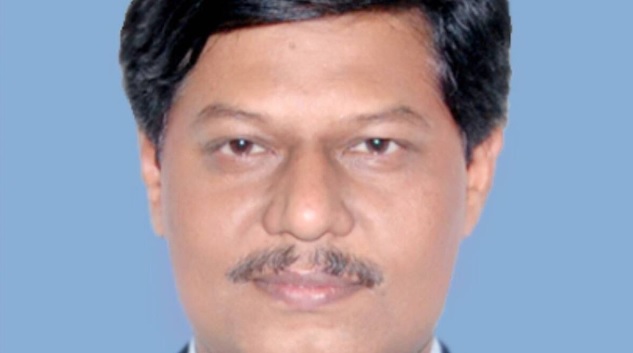[et_pb_section fb_built=”1″ _builder_version=”4.0.6″][et_pb_row _builder_version=”4.0.6″][et_pb_column type=”4_4″ _builder_version=”4.0.6″][et_pb_text _builder_version=”4.0.6″]
Aug 23, 2022
On the eve of BAIF’s 56th Foundation Day on Wednesday, Kakade spoke to The Indian Express about the state of agriculture in rural India.
Indian agriculture can easily lap up new technology and it is technology that will allow the sector to go to the next level, Bharat Kakade, president and managing trustee of Pune-headquartered BAIF Development Research Foundation, said. BAIF aims to help rural communities through various interventions. On the eve of BAIF’s 56th Foundation Day on Wednesday, Kakade spoke to The Indian Express about the state of agriculture in rural India.
Q. How has Indian agriculture fared in the post-Covid era? Agriculture, along with IT, were the only two fields that had shown positive growth during the pandemic, so expectations from both were high. Has the growth continued and what has been your observation in terms of changes that took place in the sector?
The pandemic years saw Indian agriculture rising to the occasion and ensuring food security and employment to migrants. We saw a lot of grassroot-level innovations in the sector which made a positive impact in various parts of the agricultural value chain. The innovations were mainly in the way farmers marketed their products or accessed inputs and allowed direct connections between producers and consumers in both cases.
Agriculture is perhaps the only sector where the producer has little say in determining the price of the end product. These innovations eliminated many layers between the producer and the consumer and allowed price discovery between both. These movements ultimately will have a very positive impact on agriculture.
Q. Direct access to markets has been a long-standing demand of the agriculture sector. How do you think these innovations can help achieve the same?
We have seen good pilots wherein producers and consumers were able to directly deal with each other. Also, we saw inputs required by farmers being supplied directly to them without having to deal with various layers associated with the present value chain. Such pilots have proved that these models can work and we in BAIF would be working on them.
In recent times, awareness about good quality food has risen and it can only be possible for the consumer if it is directly sourced. Thus, these models and this awareness will help in changing the ecosystem in a better way.
Q. Technology like drones has now been allowed for use in the agricultural sector. While such technology is always welcome, do you think the sector has the necessary bandwidth, in terms of knowledge and accessibility, to use such technology?
When it comes to mobile phones, India has an enviable penetration of more than 95 per cent. This figure is huge and shows that our country has the appetite for technology. Mobile phones, other than allowing for connectivity, have also opened a new world for farmers. Now, they use it to value-add to their practices and get knowledge about this. We at BAIF use this to push knowledge and services directly at the grassroot level. In fact, our E Dost project trains women in the village to run mobile-based services like filling in forms etc.
Thus, technology like drones will help the farmers but they have to be made accessible. BAIF has always been working on making technology accessible both in terms of usage and fees. Low cost solutions are needed for technology to be made accessible for all. Technology will allow the sector to go to the next level and I am sure it will be seen in the next few years.
Q. In the coming years, what would be BAIF’s focus in terms of work?
As I mentioned earlier, we would be working on access to markets as well as ensuring inputs reach farmers directly. Another area of focus would be making agriculture adapt to climate change and mitigate its effects. Another important sector which we would be working on is to scale up women leadership in agriculture. The participation of women in agriculture is huge but we want them to take ownership of their work in the sector.
[/et_pb_text][et_pb_text _builder_version=”4.0.6″]
Indian-Express, News
[/et_pb_text][/et_pb_column][/et_pb_row][/et_pb_section]

